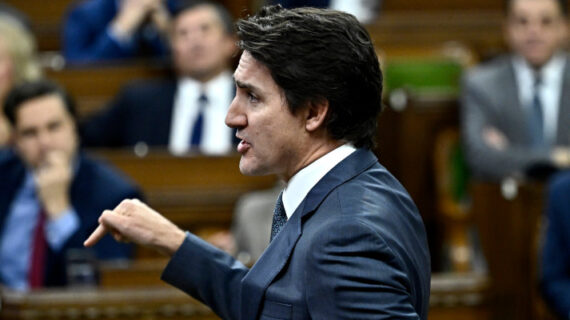- Doug Ford announced Monday that Ontario will utilize for-profit, private clinics to help bring the province's surgical backlog to normal levels.
- The plan follows the lead of other provinces who have implemented similar models, including British Columbia, Quebec, and Saskatchewan.
- Critics reacted strongly to the announcement, saying that there would be a migration of doctors and nurses to private clinics from the public system.
Ontario Premier Doug Ford said he hopes private clinics will bring the province’s surgical backlog to normal levels in a matter of months and promised on Monday that the expanded capacity at for-profit clinics is here to stay.
“We’re going to change people’s lives, we’re going to make sure we get caught up,” said Ford, at a news conference in Toronto.
The plan follows other provinces, including British Columbia, Quebec, and Saskatchewan, that have swiftly cleared surgical backlogs caused by the COVID-19 pandemic by turning to private clinics that perform publicly-funded procedures.
“We need to look to other provinces and countries to see what they do differently and borrow the best ideas. We also need to be clear Ontarians will always access health care with their OHIP card, never their credit card,” said Ford.
As part of phase one of Ford’s plan, the province will tackle an extensive backlog for cataract surgeries by working with for-profit surgical and diagnostic centres in Windsor, Kitchener-Waterloo, and Ottawa. The plan is expected to add the capacity for 14,000 new surgical procedures each year, which the province hopes will clear about a quarter of the backlog for cataract surgeries.
Ontario is also spending $18 million at existing centres to boost the amount of MRI and CT scans, cataract surgeries, ophthalmic surgeries, minimally invasive gynecological surgeries, and plastic surgeries.
Phase two of the plan will further expand capacity for cataract surgeries and colonoscopy and endoscopy procedures, among others. Phase three will expand MRI and CT scanning at for-profit clinics and expand surgeries for hip and knee replacements starting in 2024.
By using these private clinics, Ontario expects the waitlist to return to pre-pandemic levels by March.
Although support for private clinics, even those that are performing publicly-funded services, has been historically unpopular in Canada, the massive health-care logjam caused by the pandemic may be changing things.
A year ago, the province’s surgical backlog reached a million procedures and the Ontario Medical Association said the backlog of health-care services, including cancer screenings, MRIs, and CT scans, had reached 20 million. The province now estimates there are more than 200,000 people waiting for a surgical procedure.
In a recent interview with The Hub, Janice MacKinnon, who was a cabinet minister in Saskatchewan and has written extensively about the province’s experience with private delivery, said the political difficulties can be overcome if political leaders focus on straightforward goals, like clearing a certain amount of patients off the waiting list.
Emanuela Tura, a family doctor in Victoria, B.C. who is also licensed to work in Australia, argued that Canadians aren’t currently getting bang for their health care buck.
“Australia subsidizes the cost of most medications. It also partially or fully pays the costs of psychologists, (and) allied members such as podiatrists, physiotherapists, chiropractors, dietitians, et cetera,” said Tura. “Similar to medications and allied care, it allows hybrid care for family doctors, surgical, and medical services.”
Tura points out that the per-person cost of health care in Canada, which was $7,507 CAD in 2022, according to the Canadian Institute for Health Information, is very similar to the same cost in Australia, which was $7,248 CAD.
In August, it was reported that British Columbia’s NDP government had paid almost $400 million to private clinics to perform surgeries on the province’s backlog.
Brian Day is a surgeon in Vancouver who helped found the Cambie Surgery Centre in 1996.
“Almost every doctor’s office in Canada is privately operated, and the funds to support generally come from the taxpayer,” says Day. “Our private centre in B.C. opened smack in the middle of a 10-year rule of the NDP.”
In 2020, Day launched an unsuccessful constitutional challenge to the laws preventing patients from accessing private health-care delivery when wait times are too long. The case is expected to end up at the Supreme Court of Canada. Day says there is nothing “earth-shattering” about the B.C. and Ontario government’s engagement of private clinics to clear the backlogs.
Day says the involvement of private clinics must continue or Canada’s health-care system will bankrupt the country.
“I understand that the surgical facilities in Canada outside Quebec are still fully subsidized by the government,” says Tura. “In general, I am not sure why we are banning private care. It is used in pretty much all countries with universal care, and overall their care is better.”

During a press conference on Monday, Ford said the increased capacity at private clinics wasn’t just a temporary measure to deal with the pandemic backlogs but would be maintained to take the burden off hospitals as the population ages.
“I always believe it’s not ‘either-or,’ it’s ‘and.’ We have great hospitals working hand in hand with the clinics and that’s the way we’re going to operate, excuse the pun,” said Ford.
Critics argued there would be a migration of doctors and nurses to private clinics from the public system.
“Ford’s plan will mean you’ll pay extra fees for care while more health care workers are driven out of the public system,” said Marit Styles, who is running unopposed in the Ontario NDP leadership race and will officially become the party leader in March. “On behalf of every Ontarian, I will fight to protect publicly funded, publicly delivered health care.”
Ontario Health Minister Sylvia Jones said the vast majority of new nurses were hired in the public system and said the province would be interrogating the private clinics about how they plan to staff up to handle the extra work.
With files from Stuart Thomson




